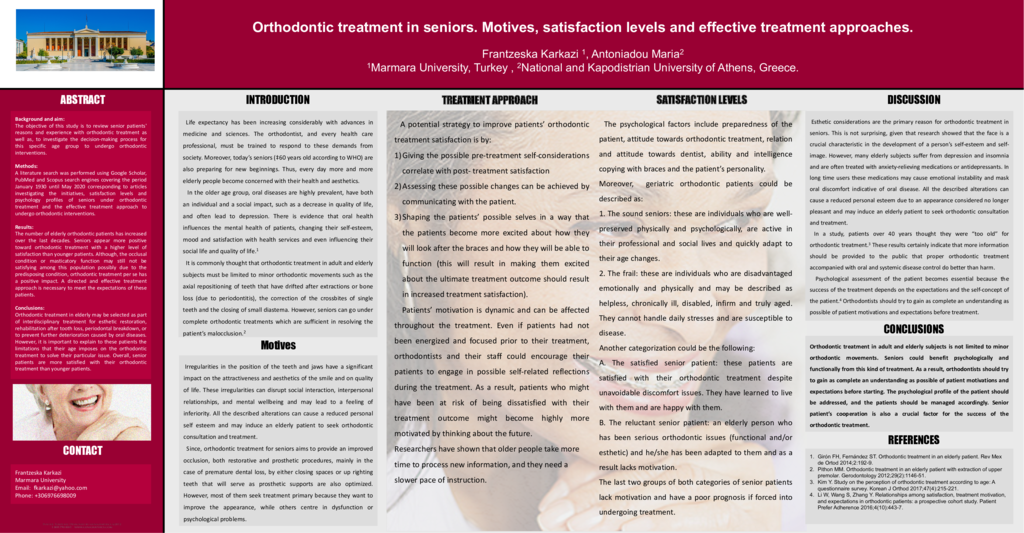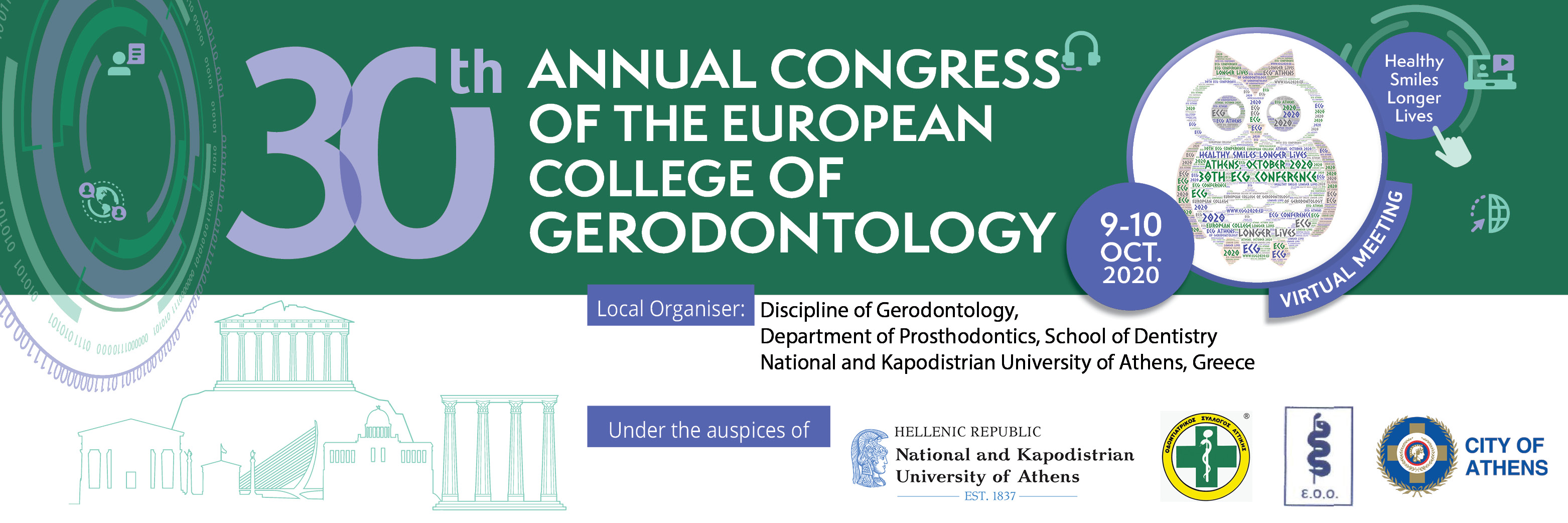Background & Aim: The objective of this study is to review the senior patients' reasons and experience with orthodontic treatment, as well as, to develop a decision-making process pattern for this age group to undergo orthodontic interventions. Methods: A literature search was performed using Google Scholar, PubMed and Scopus search engines covering the period January 1930 until June 2020 corresponding to articles investigating the initiatives, satisfaction levels and psychological profiles of seniors under orthodontic treatment and the effective treatment approach to undergo orthodontic interventions. Results: The number of elderly orthodontic patients has increased over the last decades. Seniors appear more positive toward orthodontic treatment with a higher level of satisfaction than younger patients. Although the occlusal condition or masticatory function may still not be satisfying among this population possibly due to the predisposing condition, orthodontic treatment per se has a positive impact. A directed and effective treatment approach is necessary to meet the expectations of these patients. Conclusions: Orthodontic treatment in the elderly may be selected as part of interdisciplinary treatment for esthetic restoration, rehabilitation after tooth loss, periodontal breakdown, or to prevent further deterioration caused by oral diseases. However, it is important to explain to these patients the limitations that their age imposes on the orthodontic treatment to solve their particular issue. Overall, senior patients are more satisfied with their orthodontic treatment than younger patients.
- 69 views




